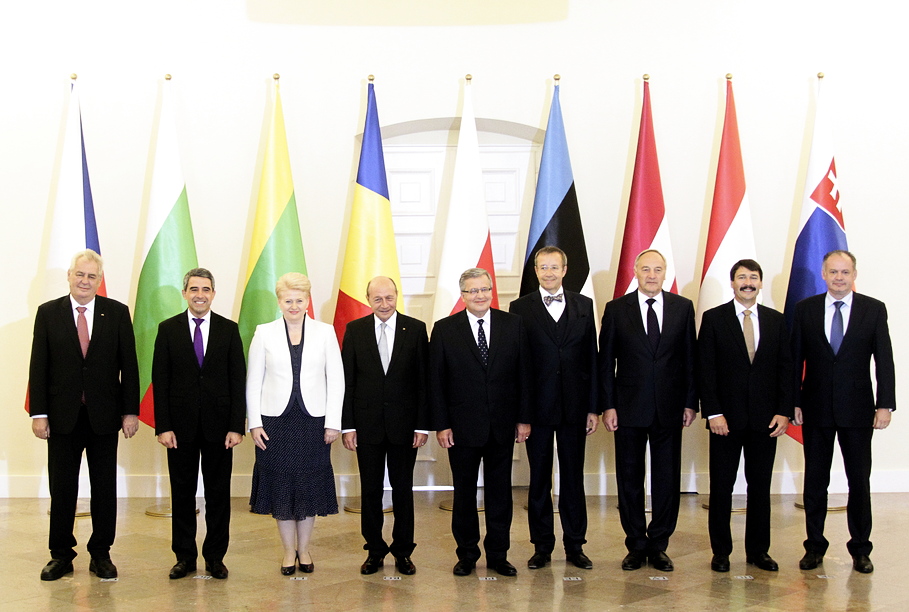According to President Andris Berzins’ spokeswoman Liga Krapane, the atmosphere at the leaders’ Warsaw summit was heavily affected by the downing of MH17 amidst escalating tensions between Ukraine and Russia.
“Today’s conference was planned in preparation for the fall NATO summit in Wales, and will be affected by the question of Ukraine. Now the situation is in fact radically new – what’s happening in Ukraine is a real threat to the security of Europe not seen since World War II. And it’s in fact evidence of a new kind of war that NATO and its member-states must take into account.
"It’s a hybrid war, as called by the diplomats, a war without frontlines, without clear indications of who’s on whose side, a war that takes advantage of a state’s internal insecurity. The summit was 99% focused on the situation in Ukraine, every single president spoke out about it,” said Krapane.
Poland’s President Bronislaw Komorowski urged NATO to strengthen its eastern flank in connection with the troubles in Ukraine.
“The Russian-Ukrainian conflict is the biggest security challenge since the end of the Cold War, which is why strengthening NATO’s eastern flank is essential,” said Komorowski.
A permanent NATO presence in the region is critical not just from the Baltic regional perspective, but also in light of the balance of powers in the Black Sea region, which has altered dramatically since Russia’s annexation of Crimea, the Polish leader added.

































